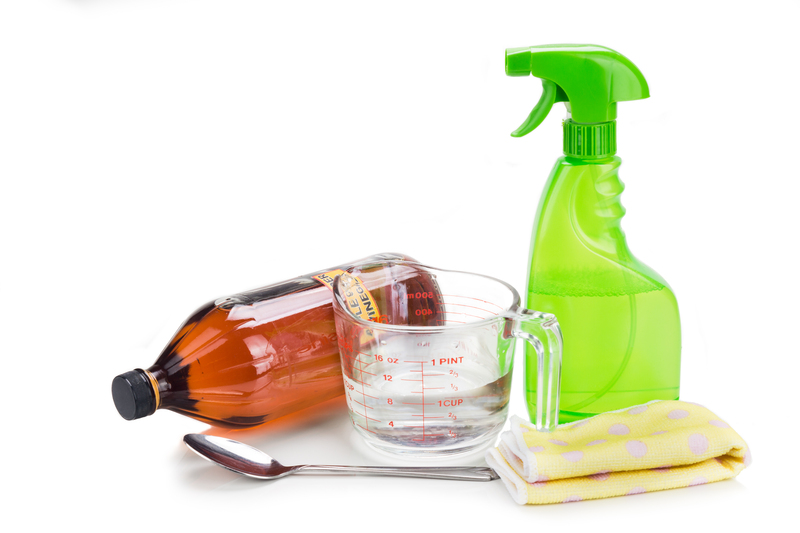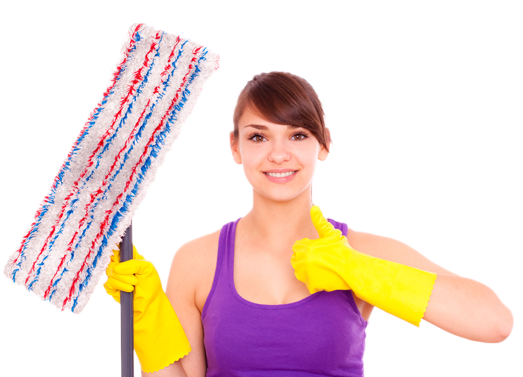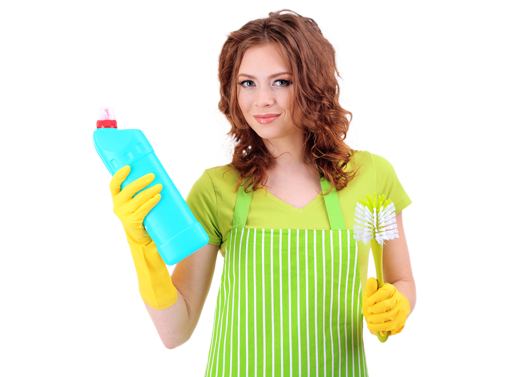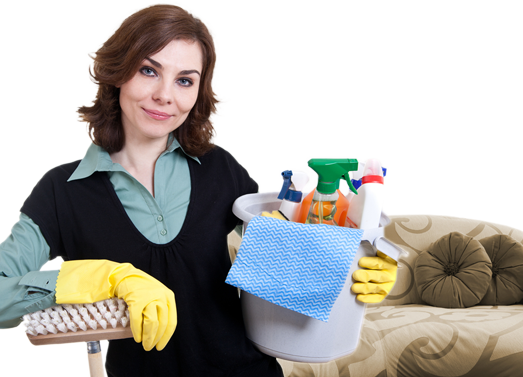From Grime to Shine: Essential Cleaning Tools
Posted on 22/08/2025
From Grime to Shine: Essential Cleaning Tools for Every Home
Maintaining a clean and sparkling home can seem like an endless battle, but with the right tools, even the grimiest spaces can be transformed into pristine sanctuaries. Whether you are a meticulous housekeeper or a busy homeowner seeking quick fixes, having a well-equipped cleaning arsenal is the key to achieving that sought-after shine. In this comprehensive guide, we will explore essential cleaning tools, how they elevate your cleaning routine, and tips for optimal use to make every corner of your home gleam.

Why Having the Right Cleaning Tools Matters
Cleaning is more than just a chore; it's an investment in your home's longevity, hygiene, and comfort. The right cleaning equipment simplifies maintenance, improves efficiency, and delivers superior results in less time. Using the wrong tools--or not enough of them--can make the process frustrating, damage surfaces, and ultimately produce lackluster results. Let's discover how upgrading your kit can turn grime into shine with minimal effort.
Building Your Cleaning Tool Kit: The Must-Haves
Your cleaning tool kit should adapt to every nook, surface, and stain. Here's a curated list of must-have cleaning tools that cover everything from dusting to deep scrubbing, ensuring your home stays sparkling clean year-round:
- Microfiber Cloths
- High-Quality Sponges
- Scrub Brushes
- Extendable Dusters
- Broom and Dustpan Set
- Vacuum Cleaner
- Steam Mop
- Spray Bottle
- Rubber Gloves
- Bucket
- Squeegee
- Toilet Brush
Let's explore these household essentials in detail, revealing how each plays a role in your transition from grime to shine.
Microfiber Cloths
Microfiber cloths have revolutionized the world of cleaning supplies. Made of finely woven synthetic fibers, these cloths attract dust, trap debris, and lift grease with minimal effort--often requiring only water. They're gentle on surfaces, making them suitable for everything from glass and mirrors to countertops and electronics. Key benefits include:
- Reusable and machine washable, making them eco-friendly.
- Highly absorbent, ideal for spills and streak-free finishes.
- Non-abrasive fibers protect delicate surfaces.
Pro Tip: Dedicate color-coded microfiber cloths to different tasks--blue for windows, yellow for kitchen counters, green for bathrooms, etc.--to maximize hygiene and prevent cross-contamination.
High-Quality Sponges
Every essential cleaning toolkit needs a variety of sponges for tackling tough messes. Cellulose sponges work wonders on dishes and smooth surfaces, while scrubbing sponges with an abrasive side are perfect for tackling stubborn grime in the kitchen and bathroom. For eco-conscious cleaners, consider biodegradable or natural sponges.
Best practices: Always wring out sponges after use, sanitize them regularly, and replace them at the first sign of unpleasant odor or wear to avoid the spread of germs.
Scrub Brushes
Different cleaning jobs require different types of scrub brushes:
- Soft-bristled brushes -- great for delicate surfaces and fabrics.
- Medium-bristled brushes -- suitable for everyday use on tiles, grout, sinks, and bathtubs.
- Stiff-bristled brushes -- tackle tough grime in outdoor areas, on decks, or in garages.
Tip: Use a dedicated grout brush to reach tight corners and restore the shine to tiled surfaces.
Extendable Duster
Extendable dusters are a must for reaching high ceilings, ceiling fans, and light fixtures. The flexible, extendable handle and pivoting head allow you to easily remove cobwebs, dust, and allergens--without the need for dangerous balancing acts on chairs or ladders.
Try a washable microfiber duster head for sustainability and effective dust trapping.
Broom and Dustpan Set
No home cleaning toolkit is complete without a trusty broom and dustpan. For hard floors, choose a broom with flagged bristles that efficiently collect even fine dust without scattering debris. Pair it with an angled dustpan for quick and effective tidy-ups.
Vacuum Cleaner
Vacuum cleaners are essential for deep cleaning carpets, rugs, upholstery, and even hardwood or tile floors. Today's models range from traditional uprights to cordless stick vacuums and powerful robot vacuums. For allergy-prone households, HEPA filter vacuums help trap dust mites, pet dander, and pollen.
- Stick vacuums: Lightweight and perfect for quick cleans.
- Canister vacuums: More versatile for stairs and hard-to-reach spaces.
- Robot vacuums: Automated cleaning when you're busy.
Steam Mop
Steam mops use the power of heated water vapor to sanitize and clean hard floors without the need for harsh chemicals. They kill bacteria, remove sticky residue, and leave floors gleaming--perfect for eco-conscious, family-friendly cleaning. Always check if your floor type is compatible with steam cleaning to avoid damage.
Spray Bottle
Simple yet indispensable, a durable spray bottle is a cornerstone of effective cleaning. Fill with homemade solutions (like vinegar and water), disinfectant sprays, or gentle cleaners to tackle daily messes and disinfect surfaces throughout your home.
Rubber Gloves
Protect your hands against harsh chemicals, hot water, and grime with high-quality rubber gloves. Choose gloves with textured grips for slippery tasks and long cuffs to keep arms dry during deep cleans.
Bucket
A sturdy bucket is essential for mopping, soaking, and rinsing. Look for ergonomic handles and graduated measurements for convenient mixing of cleaning solutions.
Squeegee
Squeegees are invaluable for achieving streak-free windows, mirrors, and shower glass. Use after every shower to prevent water stains and mildew buildup, or pair with a microfiber cloth for sparkling windows.
Toilet Brush
No bathroom should be without a dedicated toilet brush. Modern designs feature antimicrobial bristles and convenient storage holders. Combine with a powerful toilet cleaner to keep your toilet bowl fresh and pristine.
Specialty Cleaning Tools: For The Next-Level Shine
Once you've mastered the basics, you may want to invest in specialty cleaning devices--especially if you face unique cleaning challenges. Here are a few to consider:
- Grout Steam Cleaner: Penetrates deep into grout lines for professional-level results.
- Upholstery Cleaner: Removes stains and odors from sofas, drapes, and carpets.
- Air Purifier: Complements traditional cleaning by capturing airborne pollutants.
- Lint Rollers: Tackle pet hair, lint, and crumbs on clothing, bedding, and upholstery.
Organizing & Maintaining Your Cleaning Tools
Proper care and storage are just as important as the tools themselves. Follow these guidelines:
- Clean after use: Rinse sponges, cloths, and brushes thoroughly after each use to prevent bacteria buildup and unpleasant odors.
- Dry thoroughly: Prevent mold and mildew by allowing tools to air-dry completely before storing.
- Replace as needed: Frayed brushes, worn cloths, and old sponges are less effective and can harbor germs. Set reminders to replace them as needed.
- Organize smartly: Use caddies, hooks, and labeled bins so every tool has a designated home, making quick cleanups easier.
Eco-Friendly Alternatives for Conscious Cleaners
Going green doesn't mean sacrificing cleanliness. In fact, many sustainable cleaning tools are just as effective as their conventional counterparts:
- Bamboo brushes with natural bristles
- Unbleached cotton or linen rags
- Biodegradable cellulose sponges
- Reusable spray bottles for homemade, non-toxic sprays
You can also make your own cleaning solutions from ingredients like vinegar, baking soda, lemon juice, and essential oils--safe for your home and family.
Tips for Maximizing Your Cleaning Tools' Effectiveness
- Rotate and assign tools: Use dedicated tools for kitchens, bathrooms, and floors to prevent germ spread.
- Follow product care labels: Some surfaces require specific tools--using the wrong one can cause damage.
- Don't skip routine maintenance: Clean and sanitize brushes, cloths, and vacuum filters regularly.
- Invest in quality: Well-made tools last longer, work more efficiently, and ultimately save you money.

Frequently Asked Questions About Essential Cleaning Tools
How often should I replace my cleaning tools?
It depends on usage, but as a general rule:
- Sponges: Every 1-2 weeks or when they start to smell.
- Microfiber cloths: After 100-200 washes.
- Brushes: When the bristles become frayed.
- Vacuum filters: Check monthly and replace as recommended by the manufacturer.
What are the best tools for allergy sufferers?
HEPA filter vacuum cleaners, microfiber dusters, and steam mops are excellent for minimizing dust, dander, and allergens. Air purifiers can also help keep indoor air contaminants at bay.
Are expensive cleaning gadgets worth it?
While basic tools will handle most cleaning tasks, investing in premium devices like steam mops or robot vacuums can save time and effort, deliver deeper cleans, and add convenience to your routine. Assess your specific needs and budget to decide if these gadgets are a smart investment for your household.
Conclusion: Turn Grime to Shine with the Right Cleaning Tools
From basic cleaning supplies to advanced gadgets, the right tools can make the transformation from grime to shine not only achievable but enjoyable. By investing in quality materials, organizing your toolkit, and using each tool to its full potential, you'll spend less time cleaning and more time enjoying a bright, healthy, and inviting home. Remember, a little effort today can mean a lot fewer headaches tomorrow, so equip your cleaning arsenal and tackle those messes with confidence!
Ready to upgrade your cleaning routine? Start with these essential cleaning tools, and watch as every part of your home goes from grimy to gleaming!




